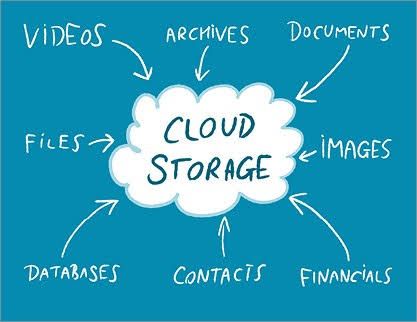Explore cases of use for blockchain, cloud, and specific industries to find out how our customers use blockchain technology to become the best business.

Blockchain and other technologies
You can also integrate blockchain with other technologies such as analysis, extensive data, machine learning, and IoT.
Connect your external blockchain networks with SAP HANA, a powerful in-memory data platform accessible through our blockchain app enablement of the cloud chain, the service ( scheduled for launch ) provides state – of – the – art analytics and development opportunities to work with blockchain.
Blockchain and Cloud

Emerging now: P2P networks using blockchain to manage cloud storage based on the distribution of surplus disk and network capacity on PCs and data centers. One such example of P2P service is the open-source, decentralized file storage solution known as Storj. This storage platform has the aim of making cloud file storage, cheaper, safer, and faster.
Storj uses the blockchain to track digital “farmers” who, like Bitcoin miners, have opted to allow the application to share excess network and storage capacity on their computers or servers. Sharding would allow for many more transactions in parallel, it is also not expected to reduce the native security of a blockchain, as it maintains “most of the desired decentralization and security features of a blockchain,” says Ethereum creator Vitalik.
Cloud vs Blockchain

Public clouds allow you to assign as many instances as you want from a public cloud provider, and such a flexible approach to scale and support a secure translation is ideal for a blockchain transaction. Health care providers can find applications for the blockchain to help reduce the cost of handling large transactions and secure storage and distribution of patient data. Take a look at your current cloud strategy and the best way to support any new Blockchain application.
If you ever get the option of cloud vs blockchain, it would be better to understand them both and try to work with them together to get the best out of these technologies.
Blockchain Cloud Computing

If Google offers a blockchain product via Google Cloud, it is likely to be decentralized and allow customers to set up knots for their blockchains elsewhere, including on other public cloud services such as AWS. Although neither AWS nor Azure offers a blockchain product, people are already hosting blockchains on such cloud services.
Google has long liked to experiment, so it shouldn’t be surprising that the internet giant is wondering what blockchain technology can do for its cloud business. The blockchain is a transparent and verifiable system that modifies the way people think of exchanging values and assets, enforcing contracts, and sharing data. The combination of blockchain and cloud with the expertise of Google can bring a huge change in how things work.
Companies use blockchain cloud computing as a standard layer of data to enable a new application class. Quickly iterate and validate blockchain scenarios, using integrated links to Azure and tools you already know. A global team of experts helps companies streamline their investments and develop effective strategies around the use of blockchains.
Cloud and Blockchain
Each time a new transaction is made, the blockchain is authenticated in the network before the transaction is recorded as the next block on the chain. It is not practical to store large pieces of data in a blockchain, which is why Acronis products only send hashes to the Notary.
Acronis is a leading provider for software backup, disaster recovery, and secure data access for consumers, small-medium businesses, and enterprises. The company provides a solution like physical, virtual, and cloud server backup. A division of this firm is Acronis Notary. This division provides a “fingerprint” hash of the files on the input of data. A slight change in the data will produce different fingerprints. Acronis Notary protects data against manipulation and deletion, protecting it by algorithmic blockchain technology.
Data center and cloud hosting services that want to serve the blockchain market need to pay attention to the price of graphics cards. But scientists and entrepreneurs are working on technology that can use the power of the blockchain to create decentralized clouds. With more applications based on the blockchain, there will be a strong demand for data centers with the right infrastructure.
The blockchain and cloud storage is a hot topic today, and many are looking for new secure, and cost-effective ways to store their ever-growing data libraries. Unlike Storj, Sia has developed its blockchain and cryptocurrency to protect and maintain the blockchain. Cloud storage scattered over the blockchain is designed to provide a new solution to the problem that is growing.
Cloud Blockchain

Blockchain technology offers users the opportunity to store information on a network of peers. Cloud blockchain storage solutions capture the user’s data and divide it into small pieces. Companies such as Storj, Sia, and Amazon create systems that allow landlords to pay small amounts of money to store data on additional space on their computers. Because blockchain uses additional space on other computers, avoiding the overheads associated with managing a typical cloud storage business, pricing plans can be much more flexible.
Blockchain vs Cloud
In contrast to cloud storage services, such as Google Drive ( which stores all files, including deleted files in the system ), decentralized blockchain data files are broken down and distributed over several nodes. According to Analysts, the authorization layer will be shifted to the blockchain, which will have an impact on the business model of cloud providers.
Blockchain vs Cloud- Cloud storage systems are designed to give the user control of data as it stored in a remote location and maintained by a cloud service provider. Instead, with the blockchain, your data is entirely decentralized because it is stored at multiple nodes around the world. Because blockchain technology uses pre-existing servers, such decentralized platforms do not require such a significant investment, so that both business and end-users can save money.
Whether you think that bitcoin and other cryptocurrencies are a bubble waiting to break out or not, blockchain technology has proven itself.








